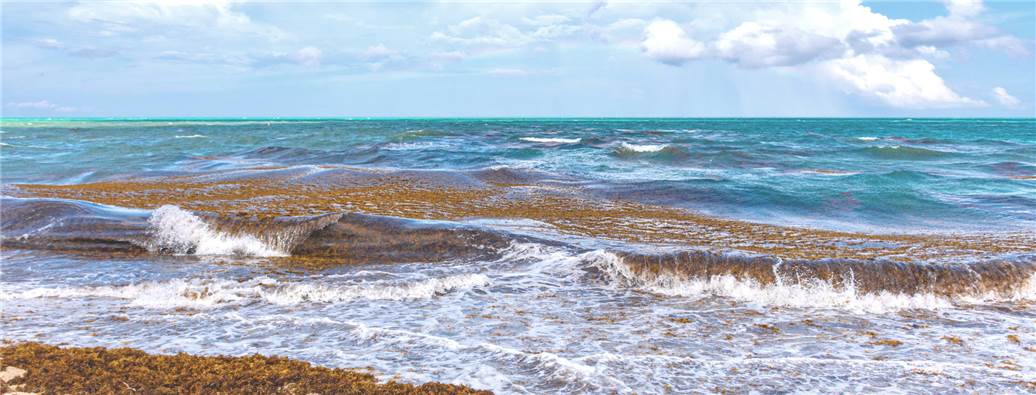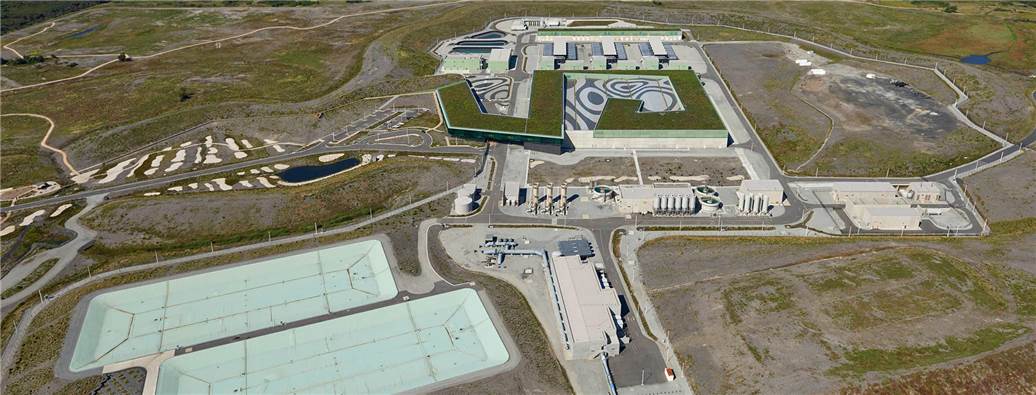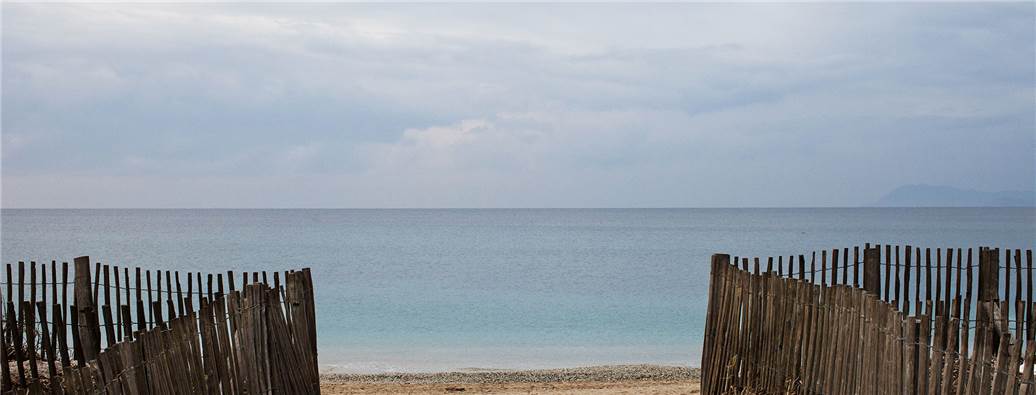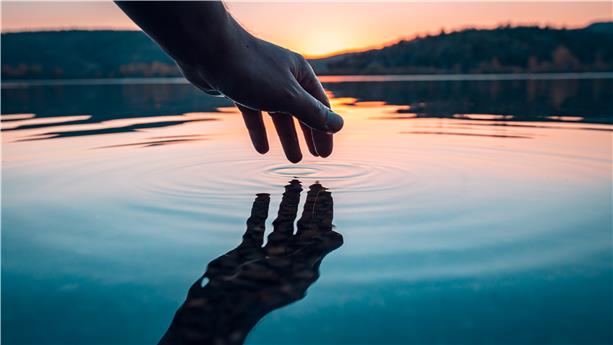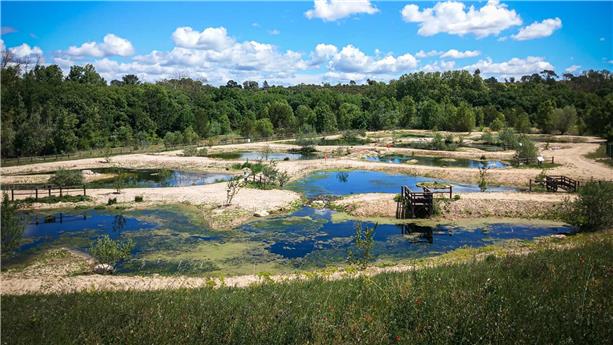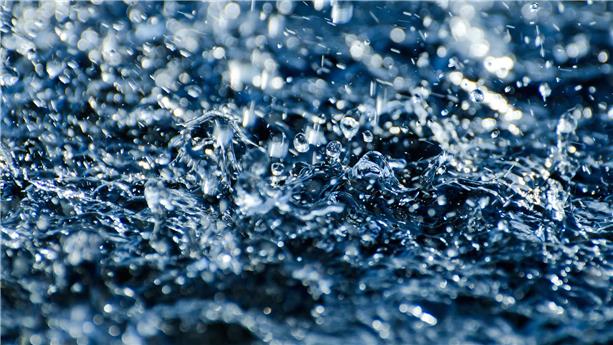
- Reducing the impact of human activities on the oceans
- Development of solutions to reconcile the maritime economy and the preservation of the oceans
- Support for coastal cities in the face of the challenge of climate change
Tackling marine pollution
Marine pollution is caused by the discharge of various products into the seas and oceans, as a result of human activities. It reaches the marine environment through rivers and waterways, but also through winds, low-latitude air or a direct discharge into the sea.
Chemical pollution
Among the main pollutants and micropollutants of human origin that flow into the ocean are pesticides, herbicides, fertilisers, detergents, oil, industrial chemicals... and wastewater (domestic, industrial).
Wherever we operate, we help strengthen wastewater treatment. We are already working on the wastewater treatment plants of tomorrow, developing state-of-the-art treatment processes, in order to make wastewater ever cleaner in the natural environment. Thanks to our SIRENE® stations, we can continuously monitor the physico-chemical quality of aquatic and marine environments.
As a specialist in water treatment, we offer complementary processes to remove micropollutants, including microplastics.
We are committed to the deployment of nature-based solutions, the Dragonfly® Zones, improving the purification efficiency of plants through phytopurification.
In addition, we ensure intelligent management of sewerage and rainwater networks, thanks to the use of technologies such as Aquadvanced urban drainage, which makes it possible to anticipate risks in order to avoid saturation of these networks, flooding and overflows into natural environments.
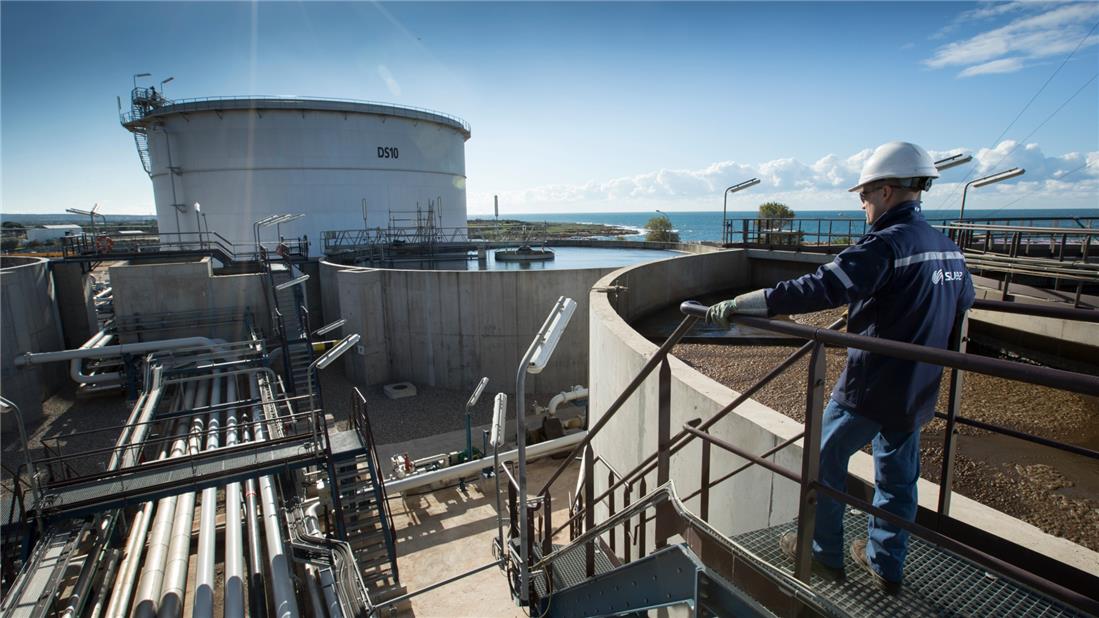
Plastic pollution
Supporting the ecological transition of blue economy actors
Decarbonisation of maritime transport
We are working on the development of biofuels from waste to help decarbonise maritime transport.
Our subsidiary dedicated to oceanography, Actimar, produces forecasts of marine currents to enable carriers to optimise the routes they take, and thus reduce their fuel consumption.
Ensuring the most sustainable desalination possible
For many countries, the sea is the main source of drinking water production. We are working on sustainable management of seawater desalination. To reduce the environmental footprint of this technology, we are deploying innovative solutions in this direction:
- Reverse osmosis: a high-performance technology with a controlled impact, which filters salt water using reverse pressure;
- Improvement of the energy efficiency of factories and supply of renewable or low-carbon energy;
- Control of brine discharges, to protect biodiversity and marine environments, and recovery of these saline residues.
Strengthening the attractiveness of coastal cities
We offer coastal cities adapted solutions to manage bathing water, and the increase in waste volumes during the tourist season.
In France, we have developed a Tourism offer to better support the sorting of waste from holidaymakers in tourist communities.
Also in France, our Rivages Pro Tech centre of expertise based in Bidart, which specialises in the management of aquatic environments, offers local authorities the GENSPOT® method, which allows them to obtain results on the quality of bathing water in 3 hours, compared to 36 hours for conventional methods.
Regenerating aquatic and marine ecosystems
In our sustainable development roadmap, we have committed to developing the turnover from our activities that contribute to the regeneration of natural environments by 2027.
To do this, we have eco-design services for maritime infrastructures that make it possible to adapt the design of structures and develop biodiversity. For example, our Cystore® solution promotes the development of cystoseira algae within artificial rock basins.
In addition, we offer acoustic biomonitoring devices for aquatic environments to measure the state of marine health. A solution is being developed in France for freshwater environments.
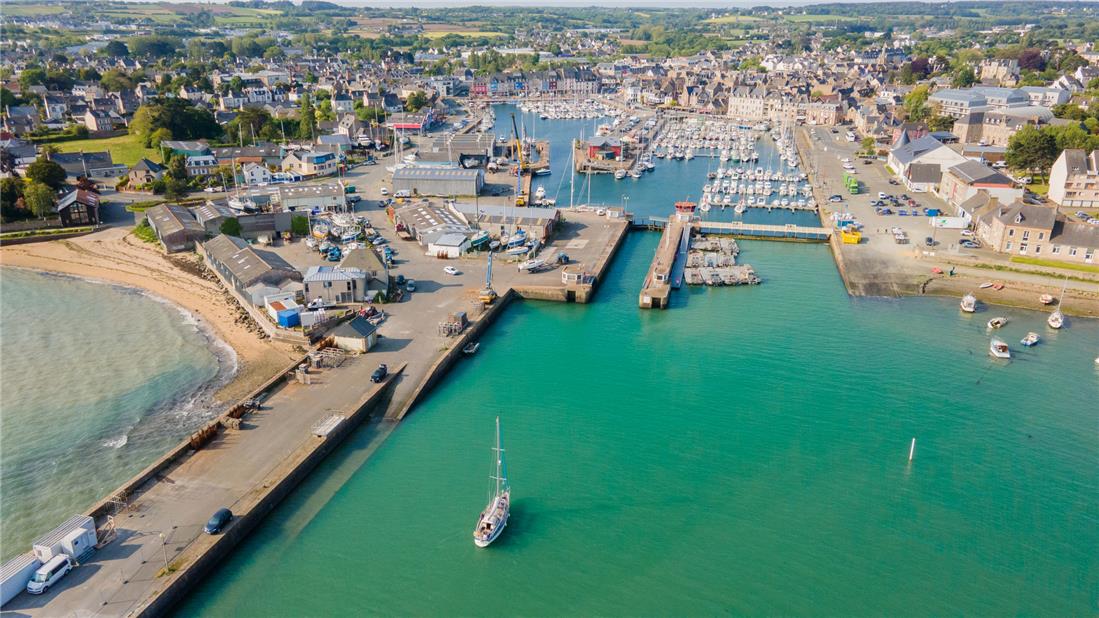
Strengthening the resilience of coastal cities to climate change
Adapting water and waste management sites to the consequences of climate change
Anticipating and managing risks through digital technology
Faced with the increase in extreme events, such as storms that lead to heavy rainfall, we can, thanks to digital technology, anticipate and manage risks:
- Marine waves-submersion, thanks to the prevention system developed by our Rivages Pro Tech centre of expertise, based on predictive models and its expertise in data management;
- Wastewater overflows into natural environments, by ensuring intelligent management of sanitation systems. All of our Aquadvanced intelligent solutions allow us to deal with severe rainfall episodes by mobilising storage capacities in the right place and at the right time.
Mitigating risk by partnering with nature
Thanks to our expertise in ecological engineering, we are able to develop nature-based solutions, tailor-made and adapted to local contexts, to reduce the vulnerability of coastal cities to climate change.
To prevent groundwater pollution caused by seawater intrusion, we have developed a groundwater recharge system by freshwater infiltration. Inspired by nature, and exploiting the purification capacities of the soil, this technique makes it possible to maintain an optimal level of the aquifers throughout the year, thus ensuring effective protection against the progression of the salt wedge from the sea.
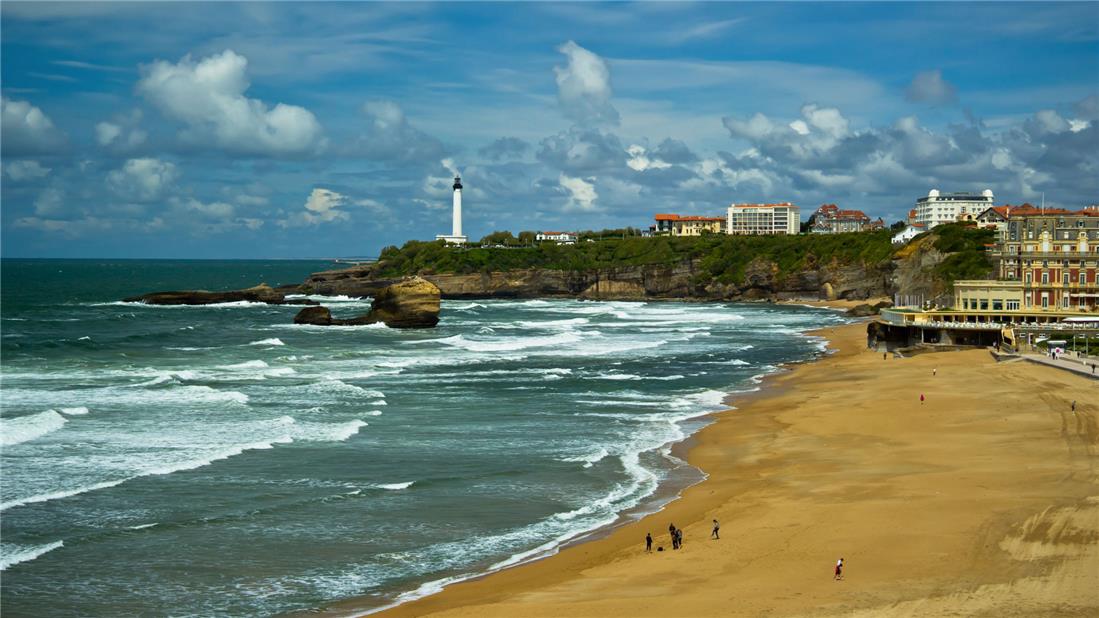
They trust us
Haliotis 2, the wastewater treatment plant of tomorrow, protects the Mediterranean
We are in charge of the project to modernise Haliotis, a wastewater treatment and recovery complex in the Nice Côte d'Azur Metropolis.
Called Haliotis 2, the new wastewater treatment plant is the largest project of its kind in France and one of the most ambitious in Europe (gradual commissioning from 2025 to 2030). Designed to meet climate challenges, it will implement state-of-the-art wastewater treatment, with a 90% elimination of microplastics. A real resource plant, it will recover sewage sludge to produce 43 GWh of biomethane per year and will reuse 5 million m³ of treated wastewater for watering and urban cleaning. Its integrated architecture will promote biodiversity, reduce nuisance and make Haliotis 2 a model of ecological transition that protects the Mediterranean.
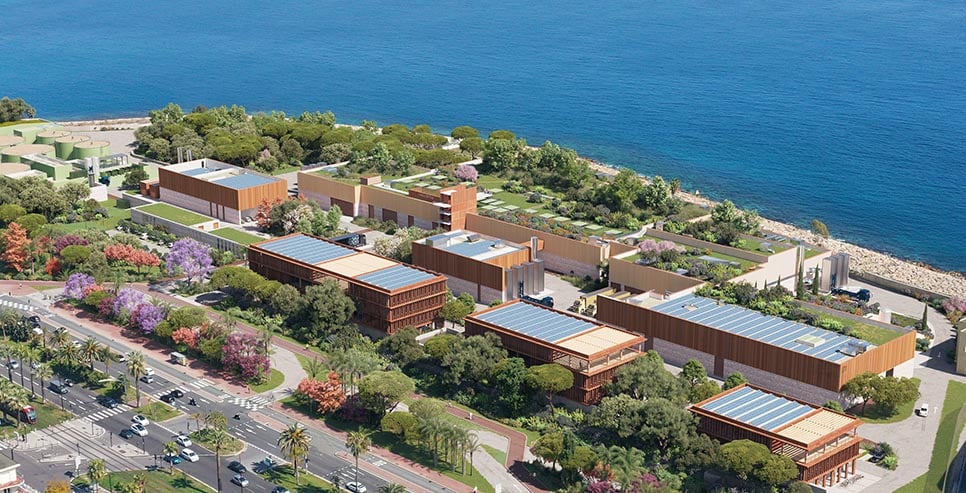
In Martinique, preserving the coastline through the extension of the mangrove
We are supporting the Communauté d'Agglomération du Centre de la Martinique (CACEM) in an innovative project to extend the mangrove, near the marina of Étang Z'Abricots. This will act as a natural bulwark against rising sea levels and storms.
To do this, a three-step approach has been developed by our teams:
- Installation of a light and reversible device, consisting in particular of wooden piles;
- Natural sediment deposition and seabed rise;
- Free development of the mangrove already present on the site.
This initiative, part of the European integrated Life project ARTISAN, demonstrates the effectiveness of nature-based solutions to strengthen the resilience of coastal communities, while promoting biodiversity.
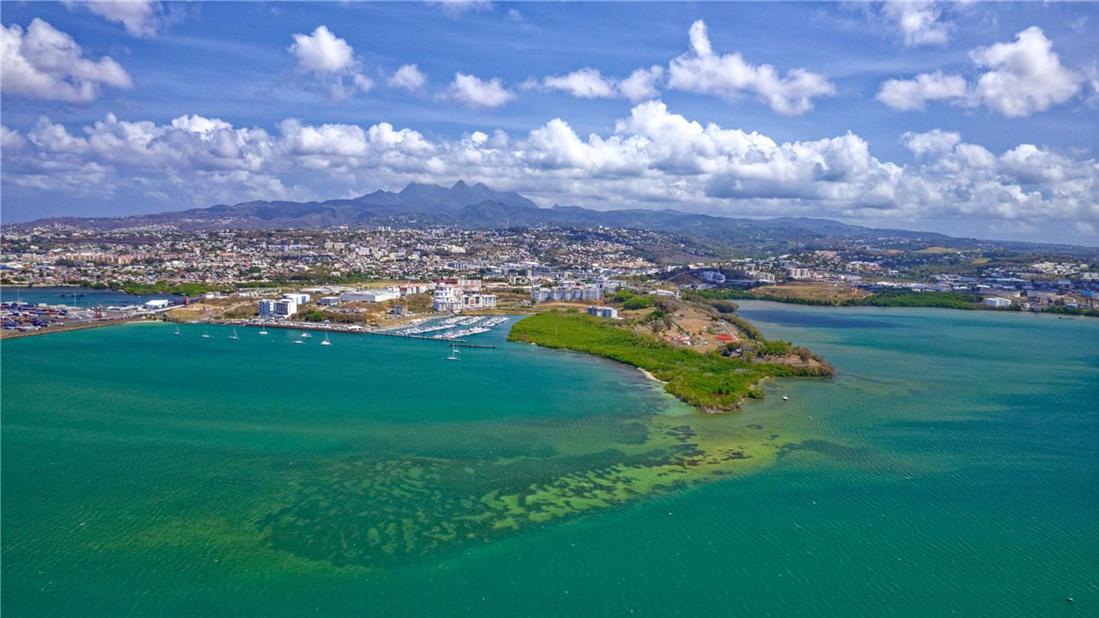
Frequently Asked Questions
Oceans and seas cover 70% of the earth's surface and contain 97% of the planet's water. They connect people, provide essential resources such as food and oxygen, play a key role in regulating the climate by absorbing about a quarter of the CO₂ emitted and are home to a rich and varied biodiversity. Due to pollution and climatic disturbances, caused by human activities, the balance of the oceans is seriously compromised.
• The establishment and effective management of Marine Protected Areas;
• The development of a blue economy that respects marine ecosystems;
• Supporting the fisheries and aquaculture sector towards more sustainable practices;
• Combating the discharge of waste and untreated wastewater into marine environments.

